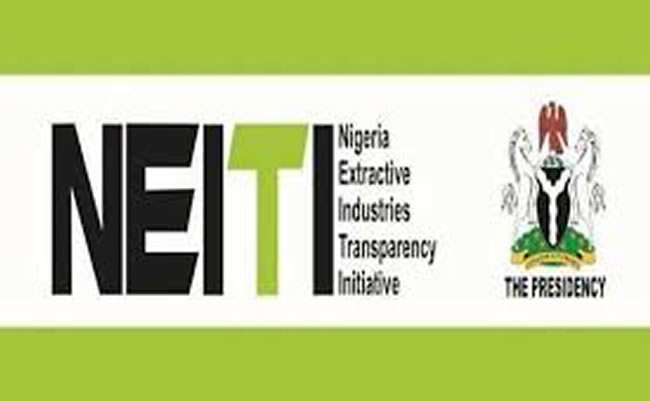The Nigeria Extractive Industries Transparency Initiative (NEITI) has announced that the solid mineral sector generated N345.41 billion in revenue for the federal government in 2022.
According to NEITI’s 2022-2023 report, the sector contributed N1.66 trillion to Nigeria’s GDP, representing 0.8% of the total GDP.
The Executive Secretary and Chief Executive Officer of NEITI, Dr. Orji Ogbonnaya Orji, at the public presentation of the NEITI 2022-2023 Solid Minerals Report, noted that the solid mineral sector has the potential to expand and contribute significantly to Nigeria’s economy.
Orji emphasized the need to address discrepancies between government revenues and company payments.
He further stated that the report highlighted Ogun, Kogi, and Rivers States as leaders in mineral production, with Ogun producing 15.36 billion tons and contributing N966.83 million in royalties.
He also disclosed that 1,619 companies owe the government N680.3 million in unpaid fees.
He stressed the importance of enhanced oversight, reform, and transparency in the sector to ensure its growth and economic impact.
Industry experts have welcomed the report, citing its importance in promoting accountability and transparency.
“This report underscores the need for stakeholders to work together to unlock the sector’s potential,” Orji said. “The solid mineral sector’s growth prospects are promising, with Nigeria’s rich mineral resources offering opportunities for economic development.”
However, challenges persist, including inadequate infrastructure, regulatory frameworks, and environmental concerns.
To address these challenges, NEITI has called for strengthened collaboration between government agencies, companies, and communities.
The organization’s efforts have yielded positive results, including the development of a data center to consolidate scattered data and enhance transparency.
NEITI’s audit reports have consistently provided valuable insights into the extractive industries, leading to significant reforms and improved revenue collection.
The Minister of Solid Minerals Development, Dr. Dele Alake, represented by the Executive Secretary of the Solid Minerals Development Fund (SMDF), Hajia Fatima Shinkafi, noted that the launch is more than a presentation of data.
He explained that it is a powerful statement of the government’s determination to build a future where Nigeria’s mineral resources drive economic diversification, generate sustainable revenue, and contribute meaningfully to national development.
“Nigeria’s economy has historically relied on oil and gas. However, global economic shifts and Nigeria’s increasing need for diversified revenue streams underscore the importance of developing our solid minerals sector,” he said.
“The Ministry of Solid Minerals Development is at the forefront of championing policies and reforms to ensure that this sector becomes a strong pillar of Nigeria’s economy, contributing to job creation, sustainable development, and resilience.”
On economic diversification through policy initiatives, Alake said the Ministry has introduced targeted policies that are laying the groundwork for accelerated growth in the solid minerals sector.
“These initiatives are designed to attract both domestic and foreign investments, streamline the regulatory environment, and create a stable, predictable framework for investors.”
ALSO READ: Trump vows to investigate rivals, election workers if re-elected
He continued, “The National Mineral Resources Development Policy, for example, provides a clear direction for sustainable mining practices, environmental protection, and resource optimization.”
“We have also undertaken reforms to improve licensing processes and encourage responsible mining, aiming to create a business-friendly environment that strengthens investor confidence and fuels economic growth.”
Meanwhile, the National President of the Miners Association of Nigeria, Dele Ayanleke, commended NEITI’s management, under the leadership of Dr. Orji Ogbonnaya Orji, and the auditors, for gathering data that enables the nation to assess transparency and accountability in the extractive industries in line with globally accepted EITI standards.
He emphasized that this commendation is especially significant considering the historically opaque regulatory and operational environment in Nigeria’s solid minerals sector.
“As a player in the Nigerian mining industry, while acknowledging the role of the oil and gas sector in our economy, I can boldly say that the solid minerals sector holds the potential for wealth creation through massive job opportunities for our youth and the development of cottage industries,” he stated.
“Nature has generously distributed these mineral deposits across the 774 local governments of this nation.”
“Thus, what remains for us as a nation is the strategic exploitation of these endowments and the judicious management of the resulting social and economic benefits.”
“It is imperative, however, that the nation becomes more committed to addressing the challenges inhibiting the growth of the sector and preventing it from fulfilling its potential.”
“Among these challenges is insecurity, which has ceded the mining space to both local and foreign armed groups. Therefore, addressing security must be treated as a national emergency,” he added.
